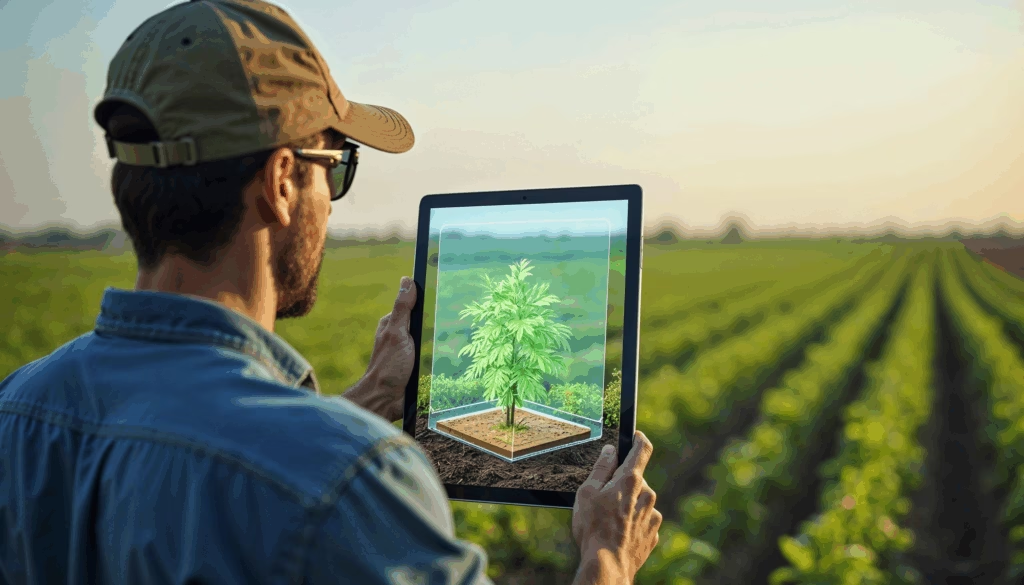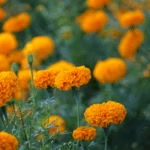Agriculture is the backbone of human civilization, but modern farming methods have put immense pressure on natural resources. To counter these challenges, sustainable farming has emerged as a solution that focuses on balancing productivity with environmental responsibility. Coupled with organic farming for sustainable agriculture, these methods ensure healthy food production, soil fertility, and ecological balance.

In this article, we’ll explore the relationship between sustainable agriculture and organic farming, the farming systems that support sustainability, and why these practices are crucial for the future of farming.
What is Sustainable Farming?
Sustainable farming is an agricultural approach that focuses on producing food while preserving the environment, maintaining soil fertility, and ensuring long-term productivity. Instead of prioritizing short-term yields, it emphasizes:
- Efficient use of natural resources
- Reduction of chemical inputs
- Protection of biodiversity
- Social and economic well-being of farmers
Also Read – Best Plants for Home Garden
In short, sustainable agriculture ensures that today’s farming does not compromise the needs of future generations.
The Role of Organic Farming in Sustainable Agriculture
Organic farming is one of the most important practices in achieving sustainable farming. It avoids synthetic fertilizers, pesticides, and genetically modified organisms (GMOs), focusing instead on natural methods of crop production.
How Organic Farming Supports Sustainability:
- Soil Health: Organic compost, manure, and crop rotation improve soil fertility.
- Biodiversity: Organic farms encourage beneficial insects, birds, and microorganisms.
- Water Conservation: Organic methods reduce water pollution caused by chemicals.
- Food Safety: Produces healthier food without harmful residues.
Thus, organic farming for sustainable agriculture is not just a choice—it’s a necessity for protecting ecosystems and human health.
Also Read – Seeds for Planting – The Ultimate Guide
Farming System and Sustainable Agriculture
A farming system refers to the way resources are managed on a farm to produce crops and livestock. For agriculture to be sustainable, farming systems must integrate ecological, social, and economic goals.
Examples of Sustainable Farming Systems:
- Crop Rotation: Alternating crops maintains soil fertility and reduces pests.
- Agroforestry: Growing trees with crops improves biodiversity and prevents soil erosion.
- Integrated Farming: Combining crops, livestock, and fisheries for maximum resource efficiency.
- Conservation Agriculture: Minimal soil disturbance and cover crops maintain soil health.
These systems highlight the direct link between farming systems and sustainable agriculture.
Benefits of Sustainable and Organic Farming
- Environmental Benefits
- Reduces greenhouse gas emissions
- Conserves soil and water
- Protects wildlife habitats
- Economic Benefits
- Long-term cost savings by reducing dependence on chemicals
- Access to premium organic markets
- Stable income for farmers
- Health & Social Benefits
- Safe, nutritious food
- Stronger rural communities
- Better resilience against climate change
Challenges in Adopting Sustainable Agriculture
Despite the benefits, farmers face challenges such as:
- High initial cost of transitioning to organic farming
- Lack of awareness and training
- Limited access to sustainable technologies
- Market competition with conventional farming
To overcome these, governments, NGOs, and consumers must work together to support farmers adopting sustainable and organic farming methods.
Future of Sustainable Farming
With climate change, soil degradation, and growing population demands, sustainable agriculture and organic farming are no longer optional—they are the future. Technologies such as precision farming, renewable energy, and AI-driven monitoring will further strengthen sustainable farming systems.
- FAO – Sustainable Agriculture
- IFOAM – Organics International
- USDA Organic Farming
- United Nations – Sustainable Development Goals
FAQs on Sustainable and Organic Farming
Q1: What is the difference between sustainable farming and organic farming?
Sustainable farming is a broader concept that includes economic, environmental, and social aspects, while organic farming specifically avoids chemical inputs and relies on natural practices.
Q2: Can conventional farming be sustainable?
Yes, if conventional farmers adopt eco-friendly practices like crop rotation, integrated pest management, and reduced chemical usage.
Q3: Why is organic farming important for sustainability?
It improves soil fertility, reduces pollution, and produces chemical-free food, making it a key driver of sustainable agriculture.
Q4: What is a sustainable farming system?
It is a farming method that integrates crops, livestock, and natural resources in a way that maintains long-term productivity and ecological balance.
Conclusion
Sustainable farming, supported by organic farming for sustainable agriculture, is the foundation of a healthier, greener future. By adopting eco-friendly farming systems, we can protect the environment, ensure food security, and promote the well-being of farming communities.
At Agzora, we believe in promoting sustainable and organic farming practices that create a better tomorrow.






2 thoughts on “Sustainable Farming: The Future of Agriculture with Organic Practices”